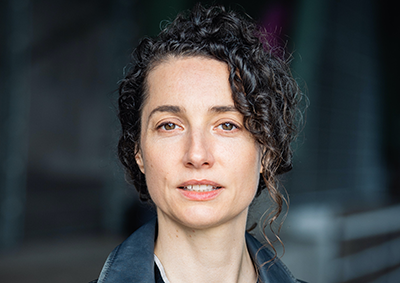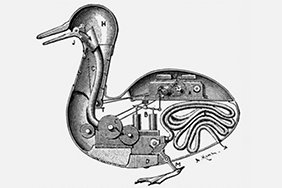CAS in Artificial Intelligence for Teachers
Mathematical Institute, University of Bern, and University of Teacher Education Bern (PHBern)
In recent years, schools and teachers are confronted with AI tools fundamentally challenging established settings. Large Language Models (LLMs) enable learners and teachers to generate documents that are close to or above the average work results. The clever use of common AI tools increases the efficiency of many tasks, enticing teachers and students to use them. Beside gaining knowledge and skills with LLMs, the CAS questions if this acceleration serve or hinders the main purpose of school – education.

| Degree | Certificate of Advanced Studies in Artificial Intelligence for Teachers, University of Bern (CAS AI4T Unibe) |
|---|---|
| Start | 2025 |
| Length | August 2025 – July 2026 |
| Scope | 16 ECTS |
| Cycle | Annual |
| Flexible entry possible | No |
| Single module visitable | Yes |
| Place | University of Bern, Mathematical Institute, University of Bern, University of Teacher Education Bern (PHBern) |
| Language | German, English |
| Admission | Aimed at teachers at baccalaureate schools and secondary level I, lecturers in teacher education and those responsible for education, as well as anyone interested in the topic of digitalization in education. |
| Registration until | 2025/08/01 |
| Cost | CHF 9’600 |
| Special Offer | Employees and Students of University of Bern and of the University of Teacher Education Bern: CHF 5’600. |
| Organising institutions | Mathematical Institute, University of Bern, and University of Teacher Education Bern (PHBern) |

|
About the program
In recent years, schools and teachers have been confronted with the situation that AI tools are fundamentally challenging established pedagogical and didactic settings. Large Language Models (LLMs) have reached a level that enables learners and teachers to generate, correct and summarise texts and even create planning documents that are close to or sometimes even above the standard of average work results. The skillful use of common AI tools increases the efficiency of many tasks, so that today both teachers and students feel compelled to use these tools for certain tasks. The question arises: Does this accelerated work serve the main purpose of school - education - or does the use of AI in schools hinder educational processes?
The CAS AI4T course has two objectives. The first is to gain an in-depth insight into the technology of LLMs. In this part, participants create simple language models ‘from scratch’ with the aim of understanding the mechanisms of the system. In the second part of the course, the focus is on the meaningful use of existing ‘state of the art’ LLMs in a school context with the aim of fostering educational processes.
The CAS AI4T is divided into six modules and runs over 20 course days from August to January. It is aimed at teachers at baccalaureate schools and lower secondary level, lecturers in teacher training and those responsible for education, as well as anyone interested in the topic of digitalisation in education. The teaching and learning approaches are geared towards teamwork and discussion and aim to develop practical skills, whereby they are orientated towards the participants' main professional activities. The final block concludes with an individual/team project work.
Before the start of the CAS, crash courses on Python and on basic mathematical concepts for machine learning are offered at the University of Bern.
Objectives
Course competence is developed throughout six modules. Upon completion, graduates will:
- be familiar with the history and present of technological aids in pedagogy and didactics and can critically assess their influence on learners, teachers and society
- have a fundamental understanding of common self-adaptive algorithms, their design, training and evaluation
- be able to carry out basic language processing and train and use generative algorithms
- be able to use AI to plan, diagnose and evaluate learning processes in a responsible and targeted manner
- understand how bias arises, know the legal basis and the ethical and sociopolitical aspects of the use of AI in learning processes, in particular possible negative effects on learners and teachers
- be familiar with current debates and tools on the use of AI in pedagogy and didactics
- be able to critically develop, run and communicate an AI project for learning processes.
Modules
If there are free places, modules can be attended individually.
Module 1: History and Present of Technology in Teaching
In this module we review the history and present of technological aids in pedagogy to critically assess their influence on learners, teachers and society.
Module 2: Technical Foundations 1 – Machine Learning (Lead Unibe)
In this module we learn about common machine learning algorithms, how to train, fine-tune and assess them.
Module 3: Technical Foundations 2 – NLP and Generative Models (Lead Unibe)
In this module we learn common techniques for natural language processing and how to build, train, fine-tune and assess generative models.
Module 4: AI in Education 1 – Planning, Diagnostics and Assessment (Lead PHBern)
This module critically studies the use of AI algorithms for planning, diagnostics and assessment in education. Current solutions serve as exemplification and inspiration.
Module 5: AI in Education 2 – Ethical, legal and sociopolitical Aspects (Lead PHBern)
In this module we learn and discuss about ethical aspects of supporting educational processes with AI, about the legal framework that applies to the use of AI in education, and finally, about the social and professional impacts regarding the use of AI in educational processes.
Module 6: AI in Education 3 – Selected Topics (Lead PHBern)
In this module we learn and discuss about important past and present topics and tools related to AI in educational processes.
All modules
The duration of all modules corresponds to approximately 20 classroom hours each and a module work (of an expected workload 30 hours), with each complete module qualifying for 2 ECTS points. Each module has a half-day assessment that is not included in the schedule. The expected workload for the CAS final Project is 120 hours equivalent to 4CTS. The main tools and languages used are Python and libraries such as TensorFlow and PyTorch. Other tools may be used with limited support from the teaching staff. Computational resources are at disposal if necessary.
Schedule 2025/26
| Abbreviation | Building |
|---|---|
| UT | Unitobler (Muesmattstrasse corner Länggassstrasse, 3012 Bern) |
| ExWi | Exakte Wissenschaften (Sidlerstrasse 5, 3012 Bern) |
| UniM / Mit | Uni Mittelstrasse (Mittelstrasse 43, 3012 Bern) |
| HG | Main Building (Hochschulstrasse 4, 3012 Bern) |
| UniS | Uni Schanzeneckstrasse (Schanzeneckstrasse 1, 3012 Bern) |
| vonRoll | vonRoll Area (Fabrikstrasse 8, 3012 Bern) |
Information Events
Learn everything you need to know about the CAS AICP. One introduction is mandatory, remote participation is possible.
| Date | Time | Location | Title | Lecturer | Comments |
|---|---|---|---|---|---|
| 2025-03-17 | 18:30 - 19:45 | Unibe Main building, room 104 and online |
Introduction to CAS AI4T | Prof. Dr. Dr. Marc Eyer, PD Dr. S. Haug | Sign up for Zoom meeting link. |
| 2025-05-19 | 18:30 - 19:45 | Unibe Main building, room 104 and online |
Introduction to CAS AI4T | Prof. Dr. Dr. Marc Eyer, PD Dr. S. Haug | Sign up for Zoom meeting link. |
Introductionary courses
To prepare yourself for the CAS Modules we offer the following two online self-study pre-courses:
-
Introduction to Python: Log in to Ilias to start
-
Mathematical Methods (MM): Log in to Ilias to start
We recommend the pre-course in MM specifically for ADS & AML participants and to start the self-study in week 32.
For NLP, AICP & AI4T participants we recommend the Python pre-course and to start the self-study in week 32.
Introduction to Python takes approx. 1 day to finish.
Mathematical Methods takes approx. 4 days to finish.
We offer Q&A sessions for both courses:
- Intro to Python: 11.08.2025, 4:00 - 6:00 pm, online, Zoom Link is on Ilias.
- MM: 13.08.2025, 4:00 - 6:00 pm, online, Zoom Link is on Ilias.
-
MM: 15.08.2025, 4:00 - 6:00 pm, online, Zoom Link is on Ilias.
Please add your questions to the Google-Forms on Ilias latest 3 days before the Q&A session!
| Title | Date | Time | Location | Session held by | Description | Comments |
|---|---|---|---|---|---|---|
Q&A Introduction to Python |
2025-08-11 | 16:00 - 18:00 | Online Zoom | Sandro Calce & Roger Wolf | Submit your questions before 08.08.2025 through the Google-Forms on Ilias | Link to Ilias |
Q&A Mathematical Methods for Data Science and Machine Learning |
2025-08-13 | 16:00 - 18:00 | Online Zoom |
Dr. K. Sipos | Submit your questions before 10.08.2025 through the Google-Forms on Ilias | Link to Ilias |
Q&A Mathematical Methods for Data Science and Machine Learning |
2025-08-15 | 16:00 - 18:00 | Dr. K. Sipos | Submit your questions before 12.08.2025 through the Google-Forms on Ilias | Link to Ilias |
DSL Introduction to Python for Data Science Pre-Course
This is a three or four days in-person introduction to Python for Data Science.
Attendance is recommended for CAS NLP, AICP & AI4T students who wish to refresh their Python programming knowledge
or who are new to the Python programming language and who think that the self-study won't be enough for them.
| Title | Date | Time | Location | Lecturer(s) | Description | Comments |
|---|---|---|---|---|---|---|
DSL Introduction to Python for Data Science Pre-Course |
TBA most likely: 2025-08-11 - 2025-08-13 |
TBA most likely: 09:15 - 17:00 |
TBA | TBA | It is recommended for NLP, AICP & AI4T participants | Sign up here |
Modules
All Information about Modules 1-6.
Course materials are accessed via the Ilias Learning Platform. The Link to the course content will appear in the table below.
| Module | Course Title | Date | Time | Location | Lecturer(s) | Comments |
|---|---|---|---|---|---|---|
Module 1 |
M1 History and Present of Technology in Teaching | 2025-08-20 - 2025-08-22
|
9:15-12:30 13:30-17:00 |
B203, vonRoll | TBD (lead PHBern) | Wednesday 9:15-12:30 Thursday and Friday 9:15 - 17:00 |
| M1 Project | half a day TBD | |||||
Module 2 |
M2 Technical Foundations 1 - Machine Learning | 2025-08-26 - 2025-08-29
|
13:15-17:00 |
B203, vonRoll |
Sigve Haug | Friday 9:15-12:30 |
| M2 Project | half a day TBD | |||||
Module 3 |
M3 Technical Foundations 2 - NLP and Generative Models | 2025-10-13 - 2025-10-17 | 08:30 - 12:30 17:00 - 18:30 |
Lago Maggiore, Italy to be confirmed |
TBD (lead Unibe) | Monday is arrival day and the module content start at 17:00. Friday is departure day and the module ends at 12:30. |
| M3 Project | half a day TBD | |||||
Module 4 |
M4 AI in Education 1 - Planning, Diagnostics and Assessment | Every Friday
2025-10-24 until 2025-11-14 |
13:15 - 17:00 |
TDB |
TBD (lead PHBern) | |
| Lecture "Legal Aspects" | 2025-11-14 | 08:15 - 12:00 | Kuppelraum HG | Mandatory for CAS AI4T | ||
| M4 Project | half a day TBD | |||||
Module 5 |
M5 AI in Education 2 - Ethical, legal and sociopolotical Aspects | Every Friday 2025-11-21 until 2025-12-12 |
13:15 - 17:00 |
TBD |
TBD (lead Unibe) | |
| M5 Project | half a day TBD | |||||
Module 6 |
M6 AI in Education 3 - Selected Topics | 2026-03-02 - 2026-03-06
(5 Days) |
08:30 - 12:30 17:00 - 19:00 |
Hotel Regina, Mürren
(Bernese Oberland) |
TBD (lead Unibe) |
Monday is arrival day and the module content start at 17:00. Friday is departure day and the module ends at 12:30. |
| half a day TBD | ||||||
Final Project |
Deadline | 2026-06-15 | TBD |
|||
Events and other important dates
| Title | Date | Time | Location | Comments |
|---|---|---|---|---|
CAS Apero |
2025-08-22 | 17:00 | UniM outside | Come together and have a drink or two |
CAS Networking Apero |
2025-11-14 | 17:00 | ExWi Foyer/Wandelhalle | Come together to connect and have a drink or two |
CAS Completion Notification |
2026-07-31 | Be informed that you have completed the CAS programme | ||
CAS Graduation Celebration |
2026-08-28 | 17:00 | LesBar (Münstergasse 63, 3011 Bern) | Celebrate your Graduation! |
Organising institution and faculty
The Certificate of Advanced Studies (CAS) in Artificial Intelligence for Teachers (AI4T) is offered by the Mathematical Institute of the University of Bern and the University of Teacher Education Bern.

Program management
- PD Dr. Sigve Haug (Director of Studies) (Unibe MAI)
- Prof. Dr. Christiane Tretter (Chair) (Unibe MAI)
- Prof. Dr. Thomas Wihler (Unibe MAI)
- Prof. Dr. Dr. Marc Eyer (PH Bern)
Lecturers
Lecturers include
- PD Dr. Sigve Haug (Unibe MAI)
- Dr. Mykhailo Vladimirov (Unibe MAI)
- Dr. Guillame Witz (Unibe MAI)
- Dr. Kinga Sipos (Unibe MAI)
- Dr. Sukanya Nath (Unibe MAI)
- Prof. Dr. Dr. Marc Eyer (PH Bern)
- Dr. Wolfgang Spahn (PH Bern)
Admission
Target groups
Aimed at students and professionals from the public and private sector who hold a degree from a university, university of teacher education or university of applied sciences (e.g. BA, BFA, MA, MFA, BSc, MSc, PhD).
Admission requirements:
- A degree from a university of arts or sciences.
- Exceptions to the admission requirements can be approved by the program management “sur Dossier”.
- Interested parties who only wish to take part in individual modules may be admitted, if places are available.
The program management decides on admission to the program. There is no entitlement to admission.
Registered participants will receive acceptance confirmation by email and will be invited to one of the next information events. Attendance to one information event is mandatory. Participants can cancel their registration free of charge up to the registration deadline. After the deadline, the regulations apply. Individual modules and electives can be attended before the registration.
Registration opens in November and a maximum of 20 registrations per year can be accepted. Applications are processed in the order of arrival. The CAS can only be offered if sufficient applications are received by the application deadline.
Deadline: 2025-05-31
Application and tuition fees
Per year there are 20 places. Registrations are accepted in the order of arrival. A waiting list is maintained.
Program fees
- Regular CAS program: CHF 9’600.
- Employees & Students of University of Bern and the University of Teacher Bern: CHF 5’600. CASs Participants are not included.
- Payment in installments is possible.
- Inclusive of all modules, performance assessments, certificates, materials & teaching platforms, coffee breaks, full hotel pension (Module 3), full hotel pension (Module 6) and diploma reception.
- Participants must bring their own laptops.
lf places are available, modules can be attended individually. Prices are CHF 300 per half day. Individual modules are accredited with certificates that are cumulative for the full CAS AI4T.
Contact

PD Dr. Sigve Haug
Mon - Fri

Prof. Dr. Dr. Marc Eyer
Mon - Fri

Dr. Katja Vaghi
Mon - Fri
Associate Courses
DAS in Extended Intelligence
| Degree | DAS |
|---|---|
| Start | 2025/08/11 |
| Language | Englisch |
| Cost | CHF 3'000 |
The modular continuing education program Extended Intelligence is designed for graduates of all disciplines who want to significantly expand their skills in data science, machine learning and statistics.
MAS in Extended Intelligence
| Degree | MAS |
|---|---|
| Start | 2025 |
| Language | Englisch |
| Cost | CHF 6'000 |
The modular continuing education program Extended Intelligence is designed for graduates of all disciplines who want to significantly expand their skills in data science, machine learning and statistics.
CAS Natural Language Processing - AI for Language
| Degree | CAS |
|---|---|
| Start | 2025/08/11 |
| Language | Englisch |
| Cost | CHF 9'600 |
The interest in Natural Language Processing (NLP) and its AI applications has increased massively in recent years. NLP belongs to both computational linguistics as its engineering domain and artificial intelligence as an increasingly important subdomain. The applications based on deep neural networks have reached a performance level which cannot be ignored by any field that is processing natural languages, see Large Language Models like BERT, ChatGPT, Gemini etc.
CAS in Artificial Intelligence for Creative Practices
| Degree | CAS |
|---|---|
| Start | 2025 |
| Language | Englisch |
| Cost | CHF 9’600 |
The CAS AICP offers the opportunity to artists and creative professionals to expand their knowledge and skills in artificial intelligence. The course covers the main technical applications of AI in the arts and creative sector, together with historical, cultural, aesthetic and ethical aspects.




